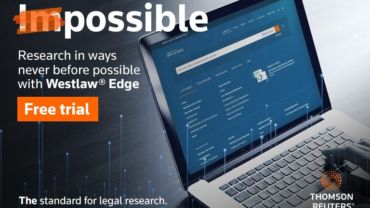Recent legal tech networking events, once again held live, are shining a light on what law firms and other legal organizations are thinking about the future of their work processes
After an extended period of pandemic and even post-pandemic lull, legal technology conferences are back again in full force, and the recent LegalSEC Summit, hosted by the International Legal Technology Association (ILTA) and iManage’s ConnectLive were just the latest showcases to offer deep dives into their select topics while revealing what is foremost on the minds of legal technologists.
Indeed, the two events in which I participated each offered a key, primary themes — deep security educational content offered to those in the legal technology realm for LegalSEC; and product awareness for current and prospective iManage customers at ConnectLive — as well as the usual parties and ubiquitous panels for all attendees.
However, over and above the expected content, these events featured a unique set of activities designed to motivate professionals to get out of their basements and living rooms and back in an environment that can better foster collaborative learning and skills expansion, such as workshops, focus groups, TED talks, networking sessions, and more. In short, it seem, at least to the organizers and many attendees, that it was time to get back to serious work.
Here are some highlights of some of the innovative tactics used to enhance the learning experience and engagement level at each conference.
LegalSEC Summit
SAN ANTONIO — Workshops were a key element of the LegalSEC Summit, with one full day of the conference dedicated almost solely to workshop content.
For example, one morning session, Using Your Work Behavior DISC profile to be More Influential and a Better Team Member asked participants to complete a behavioral self-assessment tool prior to the conference, with discussion of the results occurring at the workshop. The goal was to establish a performance development framework to help attendees understand their leadership styles and improve their workplace teamwork.
To summarize briefly, the DISC process was as follows: Prior to the conference, attendees self-identified, via the response to scores of questions, a ranking score in four areas: Dominance, Influence, Steadiness, and Compliance. This helped participants understand their “work styles” via comparisons like these below:
-
-
- Assertive vs. Reflective
- Optimistic vs. Realistic
- Predictable vs. Driving
- Complaint vs. Pioneering
-
During the workshop, discussions and exercises provided guidance to help participants understand both their greatest strengths and developmental opportunities — crucial topics that are unfortunately rarely addressed in the day-to-day work lives of deep technical professionals.
In the afternoon, focus shifted back to core security content through a group play of Backdoors & Breaches, an incident response card game, from Black Hills Information Security and Active Countermeasures. The main goal of the game is to help security professionals conduct incident response tabletop exercises and learn attack tactics, tools, and methods in an interactive manner. Essentially, attacks within the game are triggered by an Incident Master, a combination of dice rolls and procedure cards occur, and there is an ability to use what are called Inject cards to add chaos into the game and facilitate further conversation. Ultimately, there are determinations made about actions taken by a Defender. Throughout the process, the game serves as a teaching tool about the different tactics and defensive actions one takes within the cybersecurity function.
The event’s keynote speaker, Kenya Parrish-Dixon, the General Counsel and the Chief Operating Officer for Empire Technologies Risk Management Group and an expert in information governance, cybersecurity, and e-Discovery addressed stepping into a leadership position when an organization is in chaos. In her speech, From Chaos, Opportunity, Parrish-Dixon reminded attendees about the value of continuous learning and how a combination of divergent assessments can help identify issues and reduce chaos. “The opportunities that presented themselves to me often came when organizations didn’t have the internal expertise to resolve problems,” she said. “Stepping into that chaos has led me to greater heights in my career and will lead you to better opportunities as well. Don’t shy away from problems — be the leader that the moment needs.”
All in all, the LegalSEC Summit’s focus on soft skill development and security issues in a game theory approach within the context of multilateral workshops gave the event a unique flavor, and I believe enriched the overall experience for attendees.
ConnectLive
CHICAGO — ConnectLive 2022 is iManage’s networking and information update event for its customers, partners, product experts, and users. As such, it exists most as an opportunity to convey the product roadmap, hold discussions on company strategy, and, importantly, facilitate the collection of feedback from clients on product issues or requests.
Yet, it was within the realm of client feedback that ConnectLive used many tactics to solicit information in new ways that proved most interesting and offered useful strategy suggestions to attendees. Focus groups and opportunities to pose questions to panelists in small groups or one-on-one formats were used with the idea that by creating a variety of input types, the quality of the feedback received would be enhanced.
Sharing data with participants was also done in different ways. In addition to the traditional panels and roundtables, other formats such as TED-style talks were leveraged to pass knowledge along in formats more consistent with how we all receive information today, specifically in shorter bursts of concise, denser messages.
On a personal level, I enjoyed the sessions outlining the iManage development roadmap, and was able to participate as a panelist speaking to building a business case for moving to the cloud. Some of the compelling reasons for such migrations include a desire to outsource certain elements of technical support to experts, improved security, and move to a fixed monthly expense.
Summing up
It was illuminating to see how both ILTA and iManage executed their vision of delivering content, albeit in different ways, to enhance the conference experience and make the most of the less frequent face-to-face time many legal professionals have together. Organizers went to great lengths to expand the manner in which conference participants received content and interacted with the various presenters, making each event a more interactive and useful session than the more traditional conference experience.
It would be heartening to see this model followed going forward as more in-person events make their way back to the forefront.






